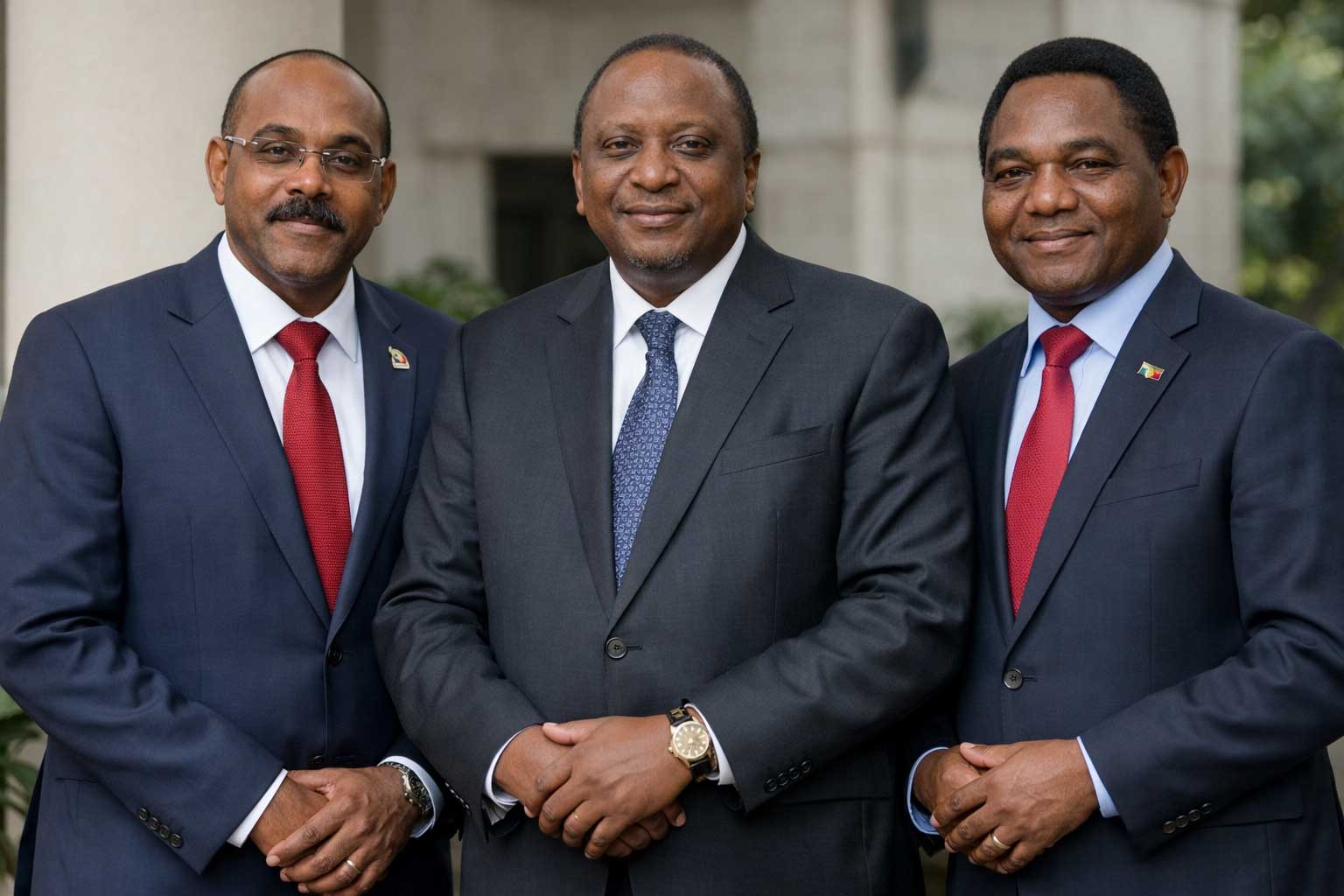Seven people from Kenya have won a case at the Family Court in London to prove they were fathered by British men working at an army base in their country. Commercially available DNA databases were used to identify otherwise unknown fathers. Six had served at the British Army Training Unit in Kenya (Batuk) and one worked as a contractor. It's the first time paternity has been proved in this way in a UK court. The decision opens the door for the offspring to apply for British citizenship.
They were represented by British lawyer James Netto, who - together with leading geneticist Denise Syndercombe Court – had taken part in a project to collect DNA samples and testimonies from people in the Nanyuki region of Kenya. They encountered many people there who believed their fathers had served at nearby Batuk, the biggest British army base in Africa. Publicly available DNA databases were then used to try to locate any family members in the UK.
One of the claimants, Peter Wambugu, told the BBC that he grew up knowing that his father was a British soldier, but said they had never met. The 33-year-old chef said he was bullied throughout his childhood for being mixed-race. Peter said his mother told him that his father 'was a good man'. He added: 'She told me he said he will be back one day, but he never came.' He has since been reunited with his father, who claimed he had no idea he had a son. After their first meeting, Peter told the BBC: 'So all the pain that I've been carrying all these 30 years, all the discrimination I get from people, that pain has come out as joy.'
Reacting to the ruling, James Netto said: 'For many families, today's hearing marks the end of an incredibly difficult journey that for so long felt impossible. Children and young people who previously only had questions, now have answers.' He expressed hope that this case will encourage the Ministry of Defence to assume more responsibility for similar paternity claims.
They were represented by British lawyer James Netto, who - together with leading geneticist Denise Syndercombe Court – had taken part in a project to collect DNA samples and testimonies from people in the Nanyuki region of Kenya. They encountered many people there who believed their fathers had served at nearby Batuk, the biggest British army base in Africa. Publicly available DNA databases were then used to try to locate any family members in the UK.
One of the claimants, Peter Wambugu, told the BBC that he grew up knowing that his father was a British soldier, but said they had never met. The 33-year-old chef said he was bullied throughout his childhood for being mixed-race. Peter said his mother told him that his father 'was a good man'. He added: 'She told me he said he will be back one day, but he never came.' He has since been reunited with his father, who claimed he had no idea he had a son. After their first meeting, Peter told the BBC: 'So all the pain that I've been carrying all these 30 years, all the discrimination I get from people, that pain has come out as joy.'
Reacting to the ruling, James Netto said: 'For many families, today's hearing marks the end of an incredibly difficult journey that for so long felt impossible. Children and young people who previously only had questions, now have answers.' He expressed hope that this case will encourage the Ministry of Defence to assume more responsibility for similar paternity claims.




















